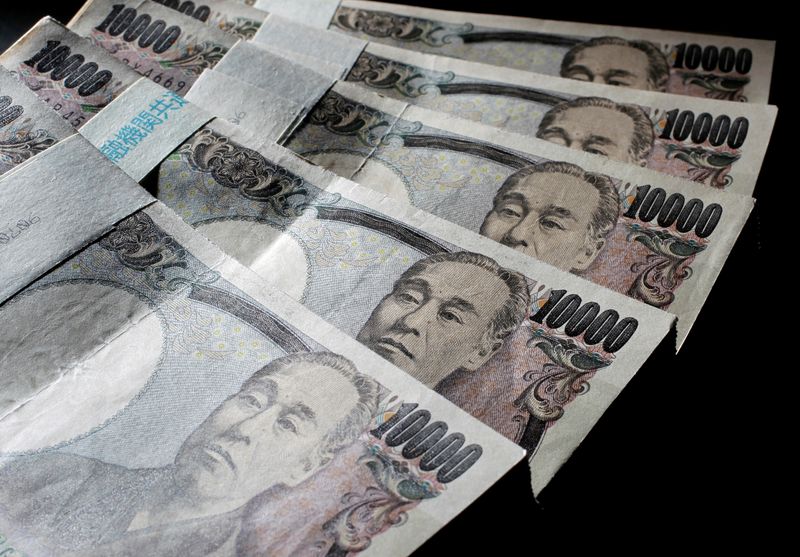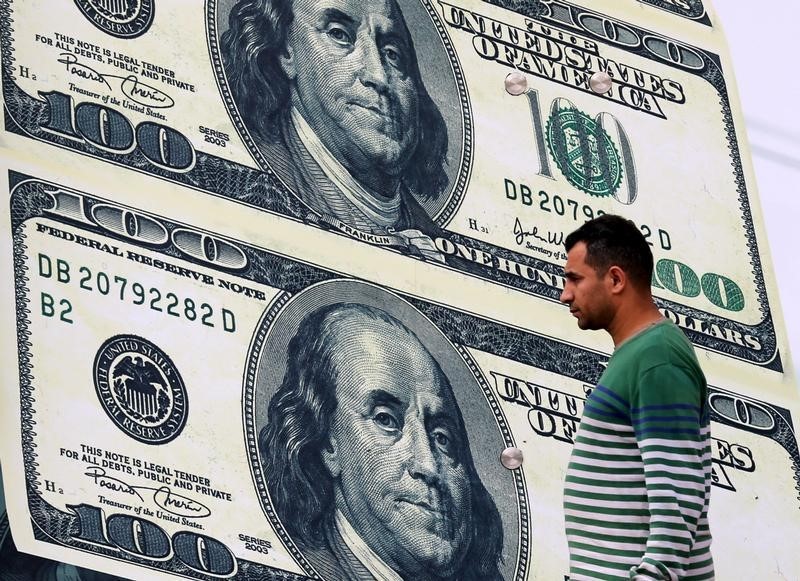By Hideyuki Sano
TOKYO (Reuters) - The safe-haven yen flirted with a seven-week high against the dollar on Thursday as investors limited their exposure to riskier assets amid dire global economic data, rising trade tensions and concerns over the euro zone.
The yen rose to seven-week high of 105.985 per dollar
"The yen is gaining as there are some questions over the European Central Bank's stimulus and as tensions between the United States and China increase again," said Shinichiro Kadota, senior strategist at Barclays (LON:BARC).
Germany's highest court on Tuesday gave the European Central Bank three months to justify purchases under its bond-buying programme, or lose the Bundesbank's participation in one of its main stimulus schemes.
U.S. Secretary of State Mike Pompeo on Wednesday renewed his aggressive criticism of China, as the Trump administration weighs punitive actions against Beijing over its early handling of the virus outbreak.
President Donald Trump said on Wednesday he was closely watching to see if China is fulfilling its obligations under a Phase 1 trade deal the two countries signed in January before the coronavirus spread globally.
On the economic data front, U.S. private employers laid off a record 20.2 million workers in April in response to the novel coronavirus outbreak.
The staggering number, while widely anticipated since 30.3 million people had filed claims for unemployment benefits since March 21, underscored the colossal damage to the economy.
In Europe, euro zone business activity almost ground to a halt last month while retail sales suffered their largest decline on record in March amid government-imposed lockdowns.
In the UK, British construction suffered its sharpest decline on record, more than twice as large as the previous month, even though general construction work was not ordered by the government to stop.
The euro changed hands at $1.0799 (EUR=) after three straight days of falls so far this week, hit also by the German court decision challenging the country's participation in the European Central Bank's stimulus.
The British pound eased a tad on Thursday to $1.2324
The risk-averse mood undermined emerging market currencies.
The Brazilian real dropped to 5.714 per dollar
Brazil's central bank slashed interest rates more than expected on Wednesday in a move aimed at shoring up the coronavirus-hit economy but one also likely to undermine the real further.

The currency has lost 4% so far this month, and 29.7% since the start of year, the worst among major emerging market currencies.
